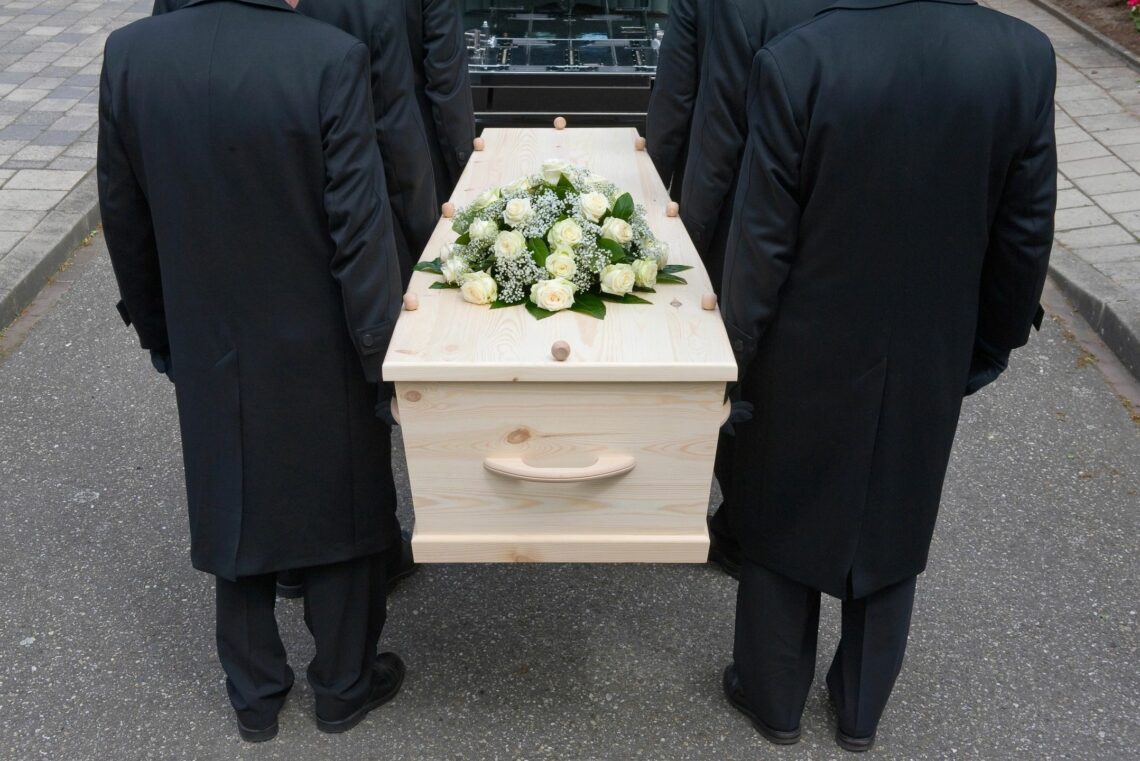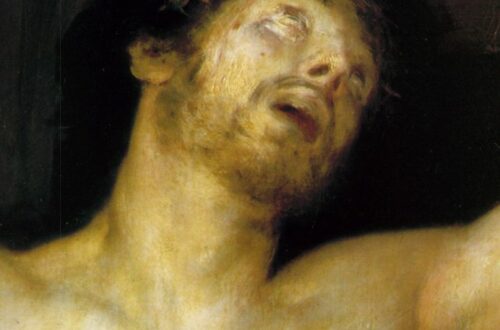The tragedy of a lifeless body is only matched by the tragedy of a worshipless life. A worshipless life is a life lived without worshiping the King, the Messiah, Jesus. In the gospels, this tragedy brings the Lord to tears and anguish over his people. In every other encounter with human misery, the Lord stoops in compassion and heals, delivers, and forgives. But his anguish is reserved for those whose lips cannot sing a song of praise to their King.
Matthew 21 – 23 records Jesus’ encounter with those who cannot worship their king. Jesus enters his city as the rightful heir to the throne of David. He is praised by his people, but rejected by the religious leaders. The very people whose praise ought to have been the loudest are the ones who are silent in the Messiah’s presence. Their refusal to worship provokes Jesus to condemn them and, as he does so, he reveals his sorrow over those who will die in a worshipless state.
In chapter 21, Jesus enters the city of Jerusalem on a colt and is greeted as the Son of David. The crowd declares him so, as do the children. They cry Hosanna to the King. This makes the religious leaders indignant. Jesus tells them that this fulfills the OT prophecy that out of the mouths of babes shall his praises be declared.
The crowd worship, but the religious leaders do not. The mouths of the religious leaders will not bring forth praise. Like Isaiah who finds himself unable to join with the praises of the angels on account of his unclean lips (Is 6), the Pharisees cannot join with the crowd in songs of praise due to their unclean hearts.
A non-worshiper has no place in a place of worship so, Jesus’ first task is to attack the money traders in the temple and declare that it is his Father’s house, a house of prayer.
Jesus will continue to make his case against the religious leaders demonstrating that they are like a fig tree that has produced no figs (21:18-19). Jesus condemns the religious leaders in the same way he condemns the fig tree (it withers up). Those who will not worship their king will be cast out, burned, and destroyed.
He gives the religious leaders three analogies about those who fail to worship the Lord. First, he tells them that they are like the bad son who says he will work in his father’s vineyard but does not (21:28-32). He tells them that there are others who, though they say they will not come, actually turn up for work. They are like the son who at first says no, will turn up in the vineyard. This is like the person who repents (under John’s and Jesus’ ministry). A true worshiper is one who repents and cries for mercy and then lives their lives for their king. In contrast, the religious leaders talk about worship, going to the synagogue, looking for the coming of the Messiah, and paying lip service to the word of God—but when it comes down to it, they do not worship the rightful king.
Second, he tells them that they are like the bad tenants of a vineyard who, when their master sends for his fruit, kill all his servants and even his son (21:33-42). The consequence for doing this is dire – a person who ‘falls on’ (attacks) the Son (the Messiah), will be broken and a person on whom the Son falls will be crushed. The sin of the tenants is that they refuse to render to the vineyard owner that which belongs to him. In the same way the religious leaders refuse to render their lives to their master and even kill his Son. The failure is a failure to worship the rightful king. Worship is due to the king. He deserves it. And yet the religious leaders fail to do it. The one they attack—the one they fail to worship—is the one who will destroy them.
Third, he tells them that they are like those who have been invited to a wedding feast but refuse to attend (22:1-14). God will make for himself a people (those who had not been invited will become his guests of honor) out of those who are lowly sinners (they will come from the streets). They the ones who accept their Messiah (Jewish riff-raff) and who repented under the ministry of John. People like the blind men from last week. The sinners, the one’s who the religious leaders look down their noses at, will come to the wedding and they will sing, and celebrate with the king’s son. They are the worshipers. God will harshly judge those who reject his invitation (those who kill John and Jesus) by burning their city. The failure to worship warrants no apathy—as if it is okay. No! The failure to worship warrants the misery of condemnation.
Following Jesus’ three parables, the religious leaders attempt to ensnare Jesus to show that he is not worthy of his title, Son of David, not worthy of worship. None succeed. Instead Jesus turns three traps around to trap the trappers, they are silenced, and Jesus pronounces his final judgment on them in the series of ‘woes’.
First, the Pharisees send some lawyers-in-training along with the Herodians. They attempt to trap Jesus with a question about taxes. If he supports them, he gives the Pharisees a reason to reject his Messiahship (since this would break OT law). If he is against them, he gives the Herodians a reason to recommend his arrest (for going against the Roman authorities). Jesus goes between the horns of the dilemma by saying that taxes paid to Caesar are due to Caesar because they belong to Caesar. This is not the same as paying one’s own money to Caesar so avoids breaking OT law. It also avoids any criticism from the Herodians. Jesus turns the trap around by accusing his hearers of not paying what they owe – worship to the one to whom they belong. So, it is the Pharisees (and the Herodians) who are guilty of breaking the covenant.
Second (23-33), the Sadducees attempt to trap Jesus by asking a question about marriage and the afterlife. They attempt to ridicule the idea of an afterlife (Sadducees are afterlife-skeptics) by telling a story of a woman who marries seven brothers each of which dies. The levirate rule was that a man must marry his brother’s widow to produce an heir. They ask to whom will the woman be married in the afterlife. Jesus replies by telling them that no one is married in the afterlife. Then Jesus cites the Torah (Ex 3:6) in which Yahweh identifies himself as “the God of Abraham”. How is it that God can identify himself as the God of the Patriarchs if the Patriarchs no longer exist? The implied answer is that the Patriarch do exist.
Third (34-40), a lawyer from among the Pharisees attempts to trap Jesus over his knowledge of the Law. Jesus repeats the summary of Law and this satisfies the lawyer. We might wonder, if Jesus has satisfied the lawyer, what is the sticking point? Indeed, Jesus has passed all the tests, evaded the traps. So, what is the problem? The central problem is worship. Even if Jesus passes all the tests and shows himself to be the son of David, the Pharisees do not worship because they do not accept that Jesus also transcends David and is the son of God.
The section closes with Jesus claim to be the son of David, the Messiah. He shows how David himself refers to his son as his Lord implying that the son of David exceeds the authority of David. The Pharisees agree that the Messiah is the son of David, but are surprised to hear that the son of David also transcends the authority of David and implies that the Messiah is the son of David, but also the Son of God. Importantly, David joins with the children by worshiping the Lord, the Messiah! This proves to be the breaking point for the Pharisees who cannot go along with this. They expect a human son, the son of David, but do not expect a divine son, one who exceeds David. Consequently, they are silent and unable to worship their king. They cannot even join with David himself. They are the very ones who ought to join in and worship their king, but they do not. This is so tragic.
At this point, the tables are turned. Those who had put Jesus in the dock in order to judge whether he is worthy of worship now find themselves facing the ultimate Judge, their own Messiah, the Lord, the judge of the whole earth.
In the following section, Jesus speaks as the prophet to his people who both pronounces judgement from God and yet is heartbroken over the state of his people. He does so in a series of ‘woes.’ A woe is a severe judgment riddled with sadness. The woes contain a central charge to the Pharisees – the wrongful interpretation of the word. The right understanding and teaching of the word is the necessary condition for right worship. If there is wrong teaching and wrong understanding, then there is no worship. This is the failure of the Pharisees!
We would do well to listen to Jesus on this point. Worship is a response to the revelation of God. It is not a feeling but a response to the truth found in God’s word. This is why preaching is so important. John Stott writes:
“Word and worship the long indissolubly to each other. All worship is an intelligent and loving response to the revelation of God, because it is the adoration of his name. Therefore, acceptable worship is impossible without preaching. For preaching is making known the name of the Lord, and worship is praising the name of the Lord made known… Our worship is poor because our knowledge of God is poor, and our knowledge of God is poor because our preaching is Poor. But when the word of God is expanded in its fullness, and the congregation begin to glimpse the glory of the living God, they bow down in solemn awe and joyful wonder before his Throne. It is preaching which accomplishes this, The proclamation of the word of God in the power of the spirit of God. That is why preaching is unique and irreplaceable” (Stott, Between Two Worlds).
The Pharisees had neglected what God had revealed to them in the OT and now reject what God is teaching through his Son in the NT. Matthew’s point all along has been to show that Jesus is the Messiah of the OT, the one expected by the prophets of old and now present in Jesus. The Pharisees have not got it half right in rejecting Jesus, but they have got it wholly wrong. In rejecting their Messiah they reveal that they reject all the prophets – they reject God’s revelation and now are worshipless.
First, the religious leaders prevent others from worship through false teaching (23:13-15) In the first woe Jesus tells them that the people are plagued by the religious leaders because they prevent worship. When coming under their instruction, a person is taught hypocrisy and not worship. In the second woe we learn that the religious leaders are evangelistic about their religion; they make many converts. But what they teach that convert is false and so they make the convert a non-worshiper destined for Gehenna.
Second, the religious leaders mishandle the Law (23:16-24). The third woe is about oaths. According to the Law, all oaths are binding, but the blind guides (Pharisees) have taught exceptions. By providing loopholes, the blind guides lead the people astray in their thinking. The fourth woe is about tithing. The Pharisees are strict about tithing down to the last leaf of a herb or spice, but they do not attend to the more important parts of scripture like justice, mercy and faithfulness. The gnat and camel are both unclean animals and should not be eaten. Jesus accuses the Pharisees of making sure they do not eat the gnat while swallowing a camel whole!
Third, the religious leaders prioritize external perception over internal reality (23:25-28). In the fifth woe he accused them of paying attention to the outside of their lives in order to appear clean and that the external cleanliness belies the worshipless state of their inner life. But Jesus tells them that to be clean on the outside one first needs to attend to the inside, the heart of the matter. In this case, the inner matter is the heart of worship. What we do outside is determined by the heart of worship inside.
The sixth woe tells us that the Pharisees practice of focusing on the external rituals of worship contaminates the whole people. Tombs were painted in order to signify that they were not to be touched. If one touched a tomb, one would be barred from Passover. The Pharisees are like whitewashed tombs because they dress to impress but by coming into contact with them, the people are rendered unclean. The Pharisees have a deeply contaminating influence on the people due to their unrighteous hearts. No amount of dressing up would make any difference. Just as no amount of whitewash would render the site clean to the touch, no amount of outward piety would render the heart clean.
Fourth, the religious leaders reject the prophets, reject Jesus’ teaching, and will ultimately have him killed (23:29-36) The seventh woe tells us that the Pharisees build tombs and monuments to the righteous prophets. As they do so, they say that they would not have killed them as their forefathers did. Jesus tells them that they are more like their fathers than they imagine and that they will fill up the measure of their fathers by killing his prophet once again. The final ‘filling up’ will bring the final judgement of God and the condemnation of the Pharisees (33-36).
Jesus ends his discourse in anguish over Jerusalem (37-39). This is a poignant section in which we see Jesus’ compassion even for those who are condemned. They are his people who reject him. He is deeply grieved by their rebellion and grieved in his judgement. He is like the prophets who go before him expressing the joint anger and anguish for the people of the Lord.




